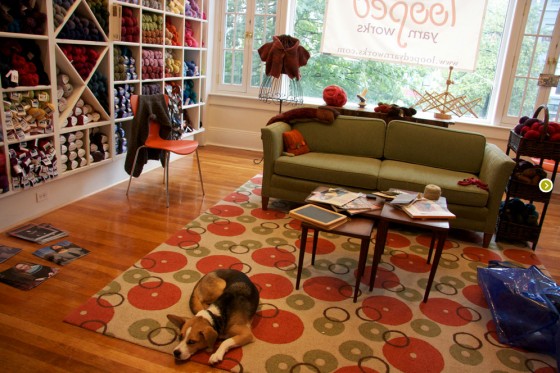Main street retail’s future: Editors, hospitality, community

Since local independent retailers don’t have the financial capacity of their national/international chain competitors, they need to look at alternative means of establishing and growing their customer base, especially in an increasingly web-centric knowledge economy.
The Fast Company article, Four Keys to Surviving the Future of Retail largely focuses on national chains, but they can be applied to local independents. Here’s how the four keys:
1. Think Like an Editor
2. Learn From the Fashion Industry
3. Embrace Hospitality in Your Brand
4. Own Your Community Network
…can be applied to local, independent retailers.
First of all, reverse the order.
1. Own Your Community Network. This is by far the local independent’s primary competitive advantage over chains, as illustrated here using crowdsourcing. While a chain has an established brand base, an indie potentially has an established community base, but really only if they choose to serve the community as a founding principle. Another approach is rather than try and bring the community to you, go to the community, via pop-up retail venues like Kickstand Coffee. The Ralph Cycle Club is a big-budget example. Even community financing is on the rise.
2. Embrace Hospitality in Your Brand. Relax customers (coffeehouse couches, living room atmosphere, even in retail stores, like B&Bs and Looped Yarn Works in DC), offer refreshments (cafe in bookstore), provide entertainment (live music), offer demonstrations (wine tasting) and inspire socializing (classes, meet-ups, common tables spark conversation, also at Looped Yarn Works). This is about applying the principles of the experience economy to stores. What local venue experiences have made you a regular?
3. Learn From the Fashion Industry. With the web providing a reliable (and preferred) medium for repeat purchases, stores need to provide new discoveries to customers alongside the favorites. Even fashion stores are refreshing their inventories beyond the standard seasons. Cafes and coffeehouses can promote a new offering each week, and venues should begin to crowdsource what new additions they should bring in.
4. Think Like an Editor. The previous rule provides a great segue into this one. Think editor. Curator. Another such title, gatekeeper, is fundamental to establishing a creative economy (the Renaissance wouldn’t have had the impact it did without them), as described in the must-read ‘The Economics of a Good Party’. Your venue needs to represent not only what is hot, but what is going to be hot.

Leave a Reply